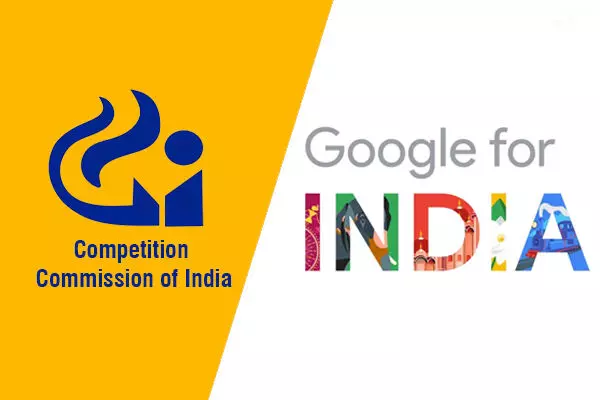- Home
- News
- Articles+
- Aerospace
- AI
- Agriculture
- Alternate Dispute Resolution
- Arbitration & Mediation
- Banking and Finance
- Bankruptcy
- Book Review
- Bribery & Corruption
- Commercial Litigation
- Competition Law
- Conference Reports
- Consumer Products
- Contract
- Corporate Governance
- Corporate Law
- Covid-19
- Cryptocurrency
- Cybersecurity
- Data Protection
- Defence
- Digital Economy
- E-commerce
- Employment Law
- Energy and Natural Resources
- Entertainment and Sports Law
- Environmental Law
- ESG
- FDI
- Food and Beverage
- Gaming
- Health Care
- IBC Diaries
- In Focus
- Inclusion & Diversity
- Insurance Law
- Intellectual Property
- International Law
- IP & Tech Era
- Know the Law
- Labour Laws
- Law & Policy and Regulation
- Litigation
- Litigation Funding
- Manufacturing
- Mergers & Acquisitions
- NFTs
- Privacy
- Private Equity
- Project Finance
- Real Estate
- Risk and Compliance
- Student Corner
- Take On Board
- Tax
- Technology Media and Telecom
- Tributes
- Viewpoint
- Zoom In
- Law Firms
- In-House
- Rankings
- E-Magazine
- Legal Era TV
- Events
- News
- Articles
- Aerospace
- AI
- Agriculture
- Alternate Dispute Resolution
- Arbitration & Mediation
- Banking and Finance
- Bankruptcy
- Book Review
- Bribery & Corruption
- Commercial Litigation
- Competition Law
- Conference Reports
- Consumer Products
- Contract
- Corporate Governance
- Corporate Law
- Covid-19
- Cryptocurrency
- Cybersecurity
- Data Protection
- Defence
- Digital Economy
- E-commerce
- Employment Law
- Energy and Natural Resources
- Entertainment and Sports Law
- Environmental Law
- ESG
- FDI
- Food and Beverage
- Gaming
- Health Care
- IBC Diaries
- In Focus
- Inclusion & Diversity
- Insurance Law
- Intellectual Property
- International Law
- IP & Tech Era
- Know the Law
- Labour Laws
- Law & Policy and Regulation
- Litigation
- Litigation Funding
- Manufacturing
- Mergers & Acquisitions
- NFTs
- Privacy
- Private Equity
- Project Finance
- Real Estate
- Risk and Compliance
- Student Corner
- Take On Board
- Tax
- Technology Media and Telecom
- Tributes
- Viewpoint
- Zoom In
- Law Firms
- In-House
- Rankings
- E-Magazine
- Legal Era TV
- Events
Google India's plea upheld by Karnataka High court in Playstore payment policy case by CCI

Google India's plea upheld by Karnataka High court in Playstore payment policy case by CCI
Directs the respondent to file its objections within two weeks
The Karnataka High Court has rejected the application filed by the Alliance of Digital India Foundation (ADIF) challenging the maintainability of Google India's plea to restrain the Competition Commission of India (CCI) from divulging the company's confidential information to ADIF.
A single-judge bench of Justice SG Pandit also extended the interim order passed earlier restraining CCI from divulging the information of the company available with it.
The application filed by ADIF stated, "No part of the cause of action as required under the Constitution of India arose within the territorial jurisdiction of this court, and hence a writ before the Karnataka High Court is unsustainable."
It further said that the petitioners were participating in the proceedings pending before the CCI in New Delhi. Since the impugned order was passed in New Delhi the copy was served to the counsel of the petitioners in New Delhi. Therefore, no part of the cause of action arose within the territorial limits of this court.
The petitioners further argued that the functioning of the Google Play Billing System, the subject matter of the inquiry by CCI, was managed by parties who do not reside within the territorial limits of the Karnataka High Court. The mere existence of the registered office of the petitioners in Bengaluru does not, by itself confer jurisdiction on the high court.
Appearing for Google India, senior advocates Gopal Subramanium and Sajan Povvayya opposed the application.
Google India had approached the court after an order was passed by CCI in April, allowing the company's confidential information to be shared with Respondent No.2.
The company submitted, "Regulation 35 (6) be read and harmoniously interpreted with regulation 35 (8), which is an overriding provision."
It was contended that the confidential information of whether the requisites of 35 (8) were fulfilled by CCI, by applying its mind and recording its finding in terms of the conditions being fulfilled, is a matter to be decided by this court.
Appearing for Respondent No.2, advocates Abir Roy and Gautamaditya Sridhara had earlier stated, "The undertaking given under Regulation 35 (7) by him is a solemn undertaking, which they are bound by and it needs to be taken note of."
Roy had also raised the question of the maintainability of the petition. Following this, the court in its May order restrained CCI from divulging confidential information of Google India to the complainant ADIF.


